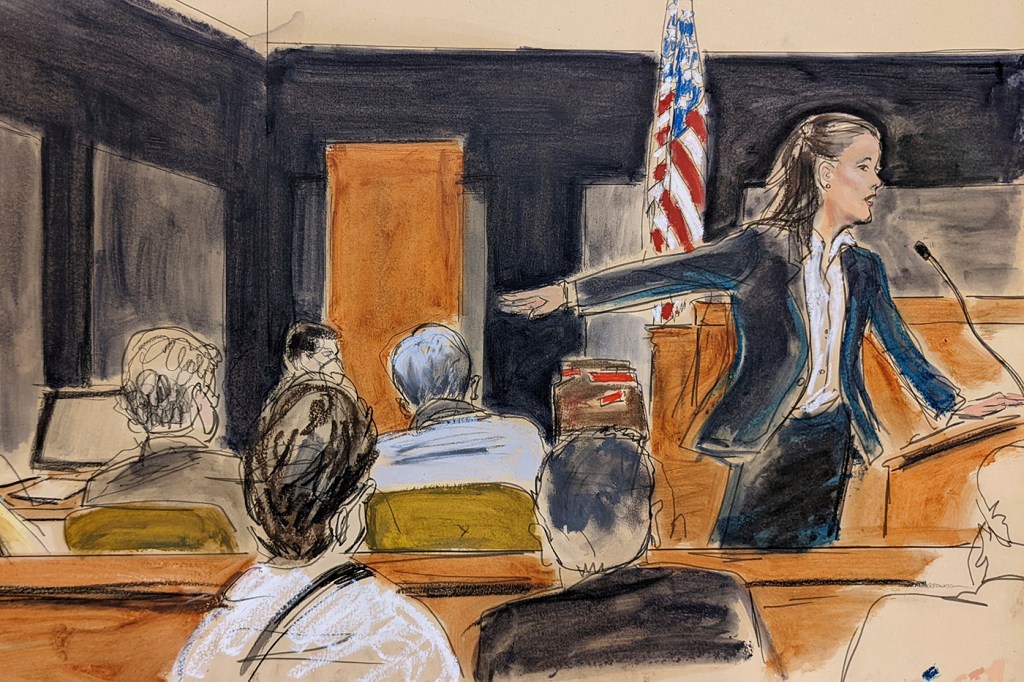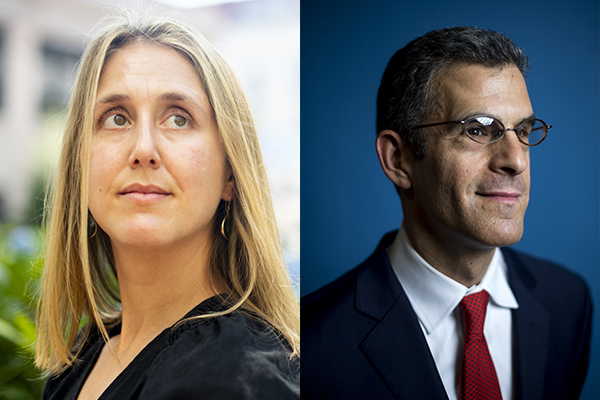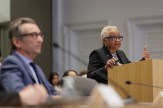Could Ghislaine Maxwell be both a victim and perpetrator of violence?

Who is Ghislaine Maxwell?
Is she an accomplice who groomed and recruited teen girls to curry favor with her wealthy boyfriend, Jeffrey Epstein, as prosecutors charge? Or is it conceivable that the British socialite is one of Epstein’s victims, caught under the coercive control that is all too common in intimate relationships where one person holds all the power?
Maxwell may be both perpetrator and victim, says Margo Lindauer, a law professor and director of Northeastern’s Domestic Violence Institute.
As horrific as Maxwell’s alleged crimes are—prosecutors say she was “deeply involved in Epstein’s sexual abuse of children”—Lindauer says it’s not uncommon to be both a victim of violence and a perpetrator of it.

Margo Lindauer, director of the Domestic Violence Institute, says Maxwell can be both victim and perpetrator of violence. Daniel Medwed, professor of law and criminal justice, thinks Maxwell’s defense attorney successfully raised doubts in the minds of jurors. Photos by Ruby Wallau/Northeastern University and Matthew Modoono/Northeastern University
“While there wasn’t overt violence in the Epstein-Maxwell relationship that we know of, there certainly was coercive control and an imbalance of power, which are fundamental and core to intimate partner violence,” she says.
Lindauer explains that beyond the most obvious outward signs of an abusive relationship, there are not-so-visible harmful acts such as isolation, economic abuse, minimizing, denying, and gaslighting, that are also hallmarks of intimate partner violence.
“Sometimes it’s framed as coercive control, where someone has control over someone else and can force them, not physically but through other means, to do things that they would otherwise not do,” she says. One area where such control happens frequently is with sexual behavior.
“So to me, yes, she was a victim of his coercive control, but she was also allegedly complicit in some very heinous crimes,” says Lindauer.
Jury deliberations in New York entered their second day on Tuesday in the highly watched sex-trafficking trial. Four women claimed that as teens, they were recruited and groomed by Maxwell for sex with Epstein. Maxwell has pleaded not guilty.
The case is seen by some people as the trial that Epstein, who hanged himself in a jail cell in 2019, never got. Maxwell’s defense attorney, Laura Menninger, said her client was being scapegoated because of her relationship with him. “Maybe that was the biggest mistake of her life, but it was not a crime,” she said.
If the 12 jurors—six men and six women—can’t reach a verdict by Thursday, they are expected to break for Christmas and resume discussions again on Monday. Maxwell turns 60 on Christmas Day.
The longer the jury deliberates, the greater the likelihood of either a hung jury or an acquittal, says Daniel Medwed, university distinguished professor of law and criminal justice.
“It suggests that at least one juror might have reservations or that there is a dispute,” he says. “A quick resolution often suggests a slam-dunk case for one side or the other.”
Medwed, who has been friends with Maxwell’s defense attorney, Menninger, for more than 20 years, believes that the lawyer has raised reasonable doubt in jurors’ minds about Maxwell’s involvement. “This is a case about accomplice liability,” Medwed points out. “Laura has done a pretty good job of trying to create reasonable doubt about Maxwell’s complicity.”
One of the reasons that aiding and abetting is treated as a crime is the realization that the main actors can’t get away with their illegal behavior without someone else’s help, Medwed explains. In the Maxwell case, it would make sense for prosecutors to go after her for that. On the flip side, if Epstein were still alive, would prosecutors have pursued charges against Maxwell?
“Chances are they might have because they have a credible case,” says Medwed. But the former appellate lawyer points out that defense counsel is trained to believe in the fact that the prosecution bears the burden of proof.
In most criminal matters, he adds, defense attorneys either make an affirmative innocence defense or try to create reasonable doubt. “Reasonable doubt about what Maxwell did or did not know, did or did not do, reasonable doubt about the motivations of the survivors to come forward,” says Medwed.
But in the Maxwell case the defense chose the reasonable doubt strategy “to sow seeds of doubt in the minds of jurors about whether this was a legitimate prosecution.”
Will it prove to be a successful strategy?
Hard to say until there’s a verdict, Medwed says, but it is a telling sign that jurors are still talking as of Tuesday afternoon.
“She gave them things to think about,” he says.
For media inquiries, please contact media@northeastern.edu.





